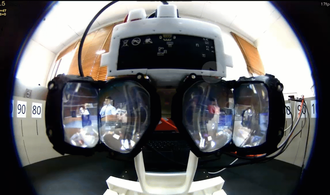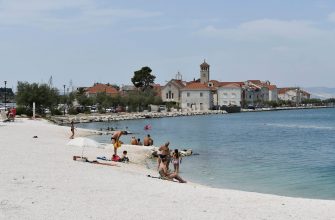The growth of ChatGPT, Midjourney, Dall-E and other forms of AI shot Nvidia’s market value past a trillion dollars a few days ago. The reason is simple: the American company develops graphics chips that, in addition to calculating demanding graphics, are suitable for processing a large amount of data used to “train” AI. They are so-called accelerators.
Among other things, Nvidia has created a software tool called Cuda, with the help of which the chips are “fed” with data and instructions. It runs exclusively on Nvidia chips, which the company benefits from. It’s a difficult position to shake. If E15 wanted to be cynical, it guesses that regulators from the European Commission will soon react and try to prevent this dominance.
But for now, the strategy is different. The European Commission launched the Syclops project through the Horizon program, in which it invested one hundred million crowns. The project is led by the French scientific institution Eurecom, with other participants being Codasip, Intel, CERN and four other European players. Their goal is to create software similar to Nvidia’s Cuda by 2025, but it will work on chips using the increasingly popular open RISC-V standard.

It competes with the dominant ARM standard, which powers the vast majority of smartphones, for example, but is burdened by licensing fees and geopolitics. For example, China has limited access to it due to US sanctions and has chosen RISC-V as a key technology.
Brno-based Codasip develops processor cores in the RISC-V standard. “Our cores are already used by three billion chips in the world,” calculated co-founder and president of Codasip Karel Masařík.
Europe is interested in supporting RISC-V on multiple levels. For example, in Barcelona, an accelerator of artificial intelligence calculations is being created based on this technology – i.e. an alternative to Nvidia – which should be deployed in European supercomputers in the first phase.
The Syclops project aims to support these and other European efforts. “The growing adoption of AI has created a market for new hardware accelerators. Unfortunately, today’s use a closed combination of hardware and software, leading to the monopolization of the market by a few large players. Syclops wants to democratize this field and create open standards,” the European Commission summarized.

In addition to Codasip, Intel will play a key role. Although the latter dominates the processor market, it has been struggling in AI accelerators for a long time and is interested in catching up with Nvidia at least a little. A year ago, Intel bought Codeplay, a smaller company engaged in the development of open software for AI accelerators, on which it will build within the European Syclops. Among other things, Codeplay integrated the software into the world’s fastest supercomputer Frontier, which was paid for by the US Department of Energy.
Codasip is gradually getting involved in more European projects, for example helping Sweden to build a chip center. In the Czech Republic, it is also playing for 1.5 billion from the IPCEI Microelectronics project from the National Recovery Plan.
According to the company, building European independence is important. In addition to its own chips, Codasip also works on software for their design. “Chip design tools are primarily held by US companies such as Cadence or Synopsys. Even these can be part of political tendencies to limit supplies,” pointed out Masařík.







